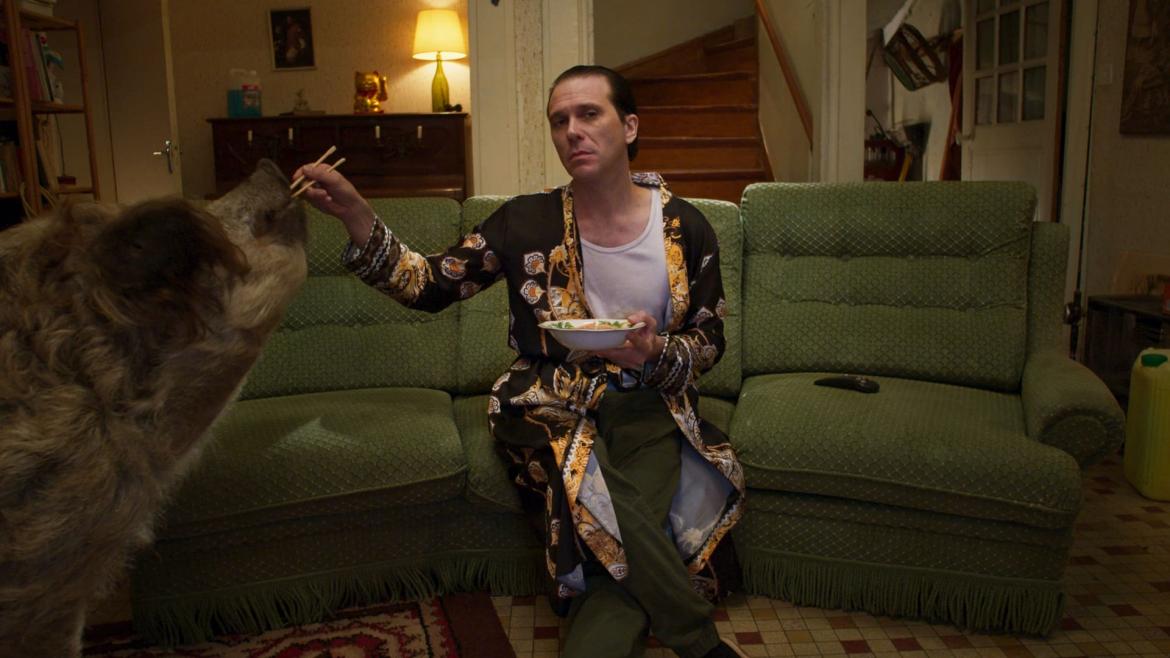
Bloody Oranges (Movie Review)
Screened as a part of the 2021 Fantastic Fest
Depictions of sexual assault are discussed below.
Are you in the mood for a juvenalian satire that will force its dark comedic tone on you and make you question when the French lost their supposed good taste?
Bloody Oranges is a dark comedy directed by Jean-Christophe Meurisse and written by Monsieur Morrissey, Yohann Gloaguen, and Amélie Philippe. It tells the concurrent tales of a retired couple trying to pay off their horrific debt through a dance competition, a corrupt politician suspected of tax fraud that is about to have a very bad evening, a self important lawyer who keeps showing up, and a teenager who wants to lose her virginity and gets abducted by a rapist who looks an awful lot like Buffalo Bill.
The film's rapid and inappropriate dialogue feels like an inebriated relative after Thanksgiving that you hope stays on their side of the table. For non-french speaking audience members the dialogue may fly by and certain jokes may be missed. Christophe Paul as Stéphane Lemarchand, the Minister of Finance and the Economy was the stand out performance for me. He delivers a grossly charming politician that is eminently hateable and pitiable at once.
In one early standout scene, political staffers brainstorm ways to raise state revenue including increasing university fees because students don't vote, reducing pensions as only pensioners use them, and taxing abortions. The writers however have a habit of starting laser focused on their political and social targets of ridicule, and then veering off for 5 minutes to discuss queefs or whether seniors can use an SUV to its full potential.
I enjoyed the editing choices made by Flora Volpelière. The use of cross cuts and abrupt scene transitions contrasts the seriousness the characters are giving to the insanity of their words and deeds. This editing style gives the film a lively pace as if constantly heightening.
Bloody Oranges does not handle its darker subjects with any tact and I would recommend not watching this film if you are a sexual assault survivor. The film turns into a French Deliverance rather lazily, again saved by the brilliant editing. The violence and depravity ratchets up by the end and connects the storyline to present a world without justice where you have to make your own.
I cannot in good conscience recommend this film to any decent person, but it delivers on upsetting and incensing its audience. Like any good satire, it is biting and it never loses its teeth. If your idea of a good time is Happiness (1998) or Sitcom (1998), then you'll be right at home watching this with the volume on low so the neighbours do not report you. Who hurt you in 1998?

